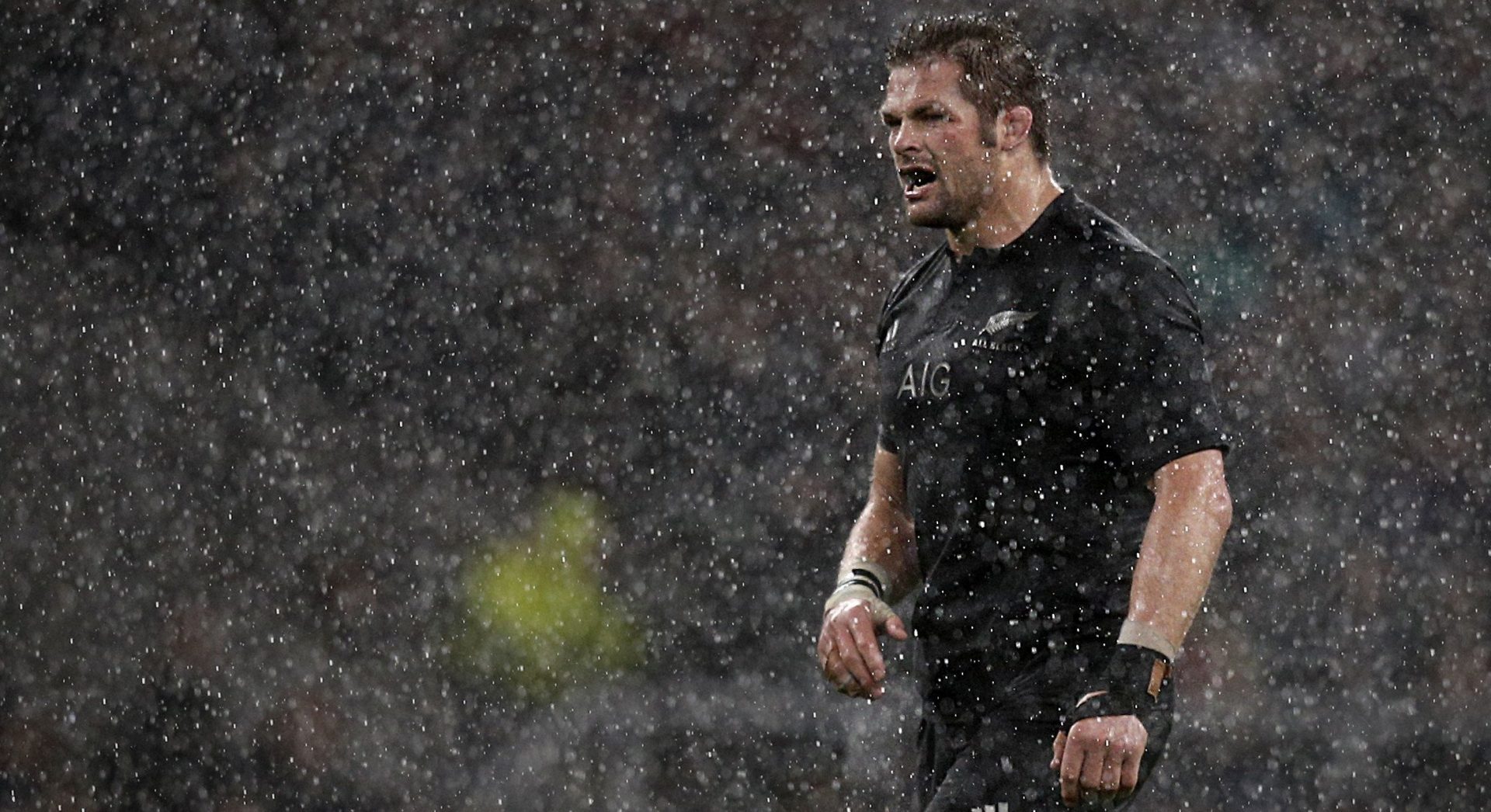With the Lions gathering pace in New Zealand, fans at home and down south are observing a trend in their ability to win. All three of their triumphs so far have come under wet conditions.
One of the series’ major talking points has been the clash between styles from the northern and southern hemispheres. How heavily has the winter weather weighed in on the results thus far, and could any trends be affected by a changing climate?
Taking recent games in New Zealand as our sample, we can clearly see trends linking the weather to the style of play. On average, when playing in the rain, the Lions have run an average of 129 metres more than their opponents.
I don't see @lionsofficial beating the All Blacks but if the Tests are wet/slippery & they control the game like tonight it could be close ?
— Cory Jane (@CoryJane1080) June 17, 2017
Less than half of those metres however, have come from backline play. In the most recent game against the Maori All Blacks 43% of metres made were by ball carrying forwards, with another 26% from kick returning, leaving only 31% of attacking metres attributable to ball played across the backline.
This breakdown of attacking statistics is symptomatic of the northern style the Lions are bringing to New Zealand, and has lead to the astonishing territory numbers clocked up in recent games. Warren Gatland’s men have dominated the set piece and used the resulting platform to camp in opposition 22’s.
In theory, this territory limits the ability of southern teams to utilise the speed and flair that has ravaged northern teams in the past. Limited space and a greasy ball put pressure on the the skills advantage southern teams possess. We’ve seen the Lions employ this tactic to good effect thus far, allowing only 5 offloads per game in the wet, versus 11.5 in fairer weather.
So, what if there was something that could change the weather and turn the tide in the favour of a northern hemisphere style of rugby? That’s where global warming comes in. In keeping with New Zealand as our example, we can see a possible change in rugby as well as the climate.
Are we destined for glory???!! @lionsofficial pic.twitter.com/PWBS6K0VxC
— Will Greenwood (@WillGreenwood) June 17, 2017
According to the New Zealand government, current predictions of the effects of global warming see rainfall rising by up to 20% in some areas. If rugby down under got 20% wetter, even the mighty All Blacks would be forced to alter their game to what would currently be considered a more northern style.
In this eventuality, the northern teams would be able to play their own game. Much like the Lions have done. Helped by the rain they’ve been able to limit free play, and when they have over 100 attacking rucks, they win every game. The more rucks we see, the more time the ball spends on the ground, and the less time it can spend in the hands of skillful All Blacks.
These All Blacks could always opt to play their home games at Forsyth Barr Stadium in Dunedin. The indoor pitch never sees rain, temperatures can be adjusted by up to 5 degrees, and the grass is always cut to a 45mm height under foot. A scientifically designed home for free flowing rugby, where we saw 558 metres made by backline running, the most so far in the Lions tour.
This precisely adjusted environment saw the Highlanders down the Lions, and is the only such stadium in the southern hemisphere. Weather-proof stadia are equally as unusual in European rugby, with only the retractable roof of the Principality Stadium in Cardiff providing relief from rain.
Construction for the Forsyth Barr stood at $193,000,000 NZD, with the Principality weighing in at £120,000,000. With rugby continually becoming more and more lucrative business, for a cost, stadia such as these would allow teams to play god with conditions, and adapt them to their own tactics regardless of changes in the weather.
Of course, none of these changes happen overnight, and the All Blacks and all other teams would have plenty of time to adapt and stay ahead, as they always have. With 7 of the 8 names on the World Cup trophy being southern hemisphere teams, their dominance is clearly no accident.
That being said, global warming is set to bring with it conditions we’ve seen can force statistical changes the southern teams wouldn’t otherwise have to make. It could never kill a team, but it could eliminate the effect of one style, and amplify the effect of another. A change in climate would rain on the playing field, and move towards leveling it.

























